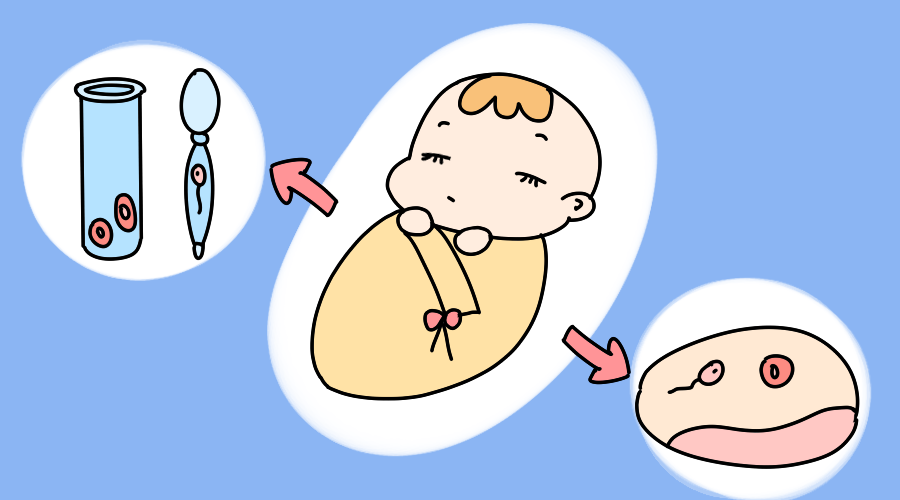IVF treatment time in detail
During clinical consultations, patients who come for the first time to enquire about IVF techniques often ask two key questions, ‘Approximately how long does it take to do an IVF?’ and ‘How much does IVF cost?’ This is mainly due to the fact that many patients lack in-depth knowledge of IVF technology, and at the same time, having gone through a long journey in search of a child, IVF often becomes their last hope, so they desperately want to conceive quickly and are worried that the treatment will be time-consuming and cumbersome. Next, I will explain in detail how long IVF treatment takes.

Understanding the treatment steps
Firstly, we need to be clear about the complete treatment cycle of IVF, which covers the following key steps: initial consultation, pre-operative check-up, documentation, superovulation, ‘night shot’ injection, egg retrieval (with sperm retrieval at the same time for the male partner), embryo transfer, corpus luteum support, and pregnancy test.
Examination Stage
During the check-up phase, both the man and the woman are required to complete a full physical examination as well as reproductive health related tests. The woman’s checkup is divided into two parts: non-menstrual and menstrual. There is no strict time sequence for these two parts of the checkup, and it is sufficient to keep an empty stomach. Men usually go to the hospital and complete all the tests in one visit.

Results of common tests are usually available on the same day. However, due to differences in testing methods and procedures, the results of individual tests can take anywhere from 2 – 10 days. For special tests such as chromosomal tests, it takes about 2 weeks for the results to be available.
After all the test results are available, the patient has to visit the doctor again to check the results. If the results are clear, the couple should bring along their marriage certificate, identity card (original and photocopy) and laboratory test results (photocopies to be kept by the patient) to the Fertility Clinic to set up an IVF profile. Subsequently, the doctor will inform the patient of the time of the next visit according to the patient’s specific situation, which is usually arranged on the second day of menstruation, when the patient will officially enter the cycle of treatment.

Ovulation Promotion and Egg Collection Stage
The doctor will formulate a personalised ovulation induction programme based on the woman’s hormone levels, ultrasound results and overall health condition. Ovulation stimulation medication will be used to stimulate the development of follicles in the ovaries as prescribed by the doctor. During the course of the treatment, the follicles are monitored at regular intervals until they are ready for the injection of human chorionic gonadotropin (HCG). This ovulation process takes about 7 – 10 days. When the follicles are mature, HCG is injected during the night and egg retrieval takes place the next day. At the same time, the male partner is required to complete the sperm retrieval on the same day as the egg retrieval.
Embryo culture and transfer
Egg retrieval is performed using a puncture needle to remove the eggs from the ovaries under the guidance of a vaginal ultrasound. After the eggs are retrieved, the fertilisation process is carried out in a petri dish and incubator in the laboratory. The fertilised eggs are incubated for 3 consecutive days to see if they develop into early embryos. Afterwards, the doctor will select the best quality embryos for the transfer procedure and the patient can leave the hospital and go home after the procedure.
If the woman’s health is not suitable for embryo transfer, the embryos can be frozen and stored until the woman’s health recovers, and then the transfer can be carried out.

After Embryo Transfer
After the embryo transfer, the patient can carry out normal daily activities, but should pay attention to the medication prescribed by the doctor, maintain a regular routine and normal diet. Fourteen days after the transfer, the patient will need to come back to the hospital for a follow-up appointment to check for pregnancy.
It should be emphasised that IVF treatment is a highly individualised process and is affected by a number of factors, including the physical condition of the couple, the ovulation regimen of the woman, the effectiveness of the ovulation regimen, the sperm retrieval of the man, the developmental potential of the embryo, and the environment of the woman’s uterus, etc. The duration of each patient’s treatment will therefore vary. As a result, the duration of treatment will vary for each patient. How long it takes to do an IVF needs to be determined according to the patient’s own actual situation and the whole treatment process.
相关推荐
- International Reproductive Experts Interpret Successful Strategies and Assisted Reproductive Options in Georgia
- Five Golden Steps to Double Pregnancy Success After IVF Embryo Transfer
- Busting the Three Biggest IVF Lies: International Reproduction Experts Reveal Truths 90% of Families Don’t Know
- Scientific Breakthroughs in 35+ Advanced Fertility Preparation
- Early signs of pregnancy after IVF transfer
Search within the site
Surrogacy News
Hot Tags.
Georgia Surrogacy Services,Legal IVF Hospital,Global Fertility Agency